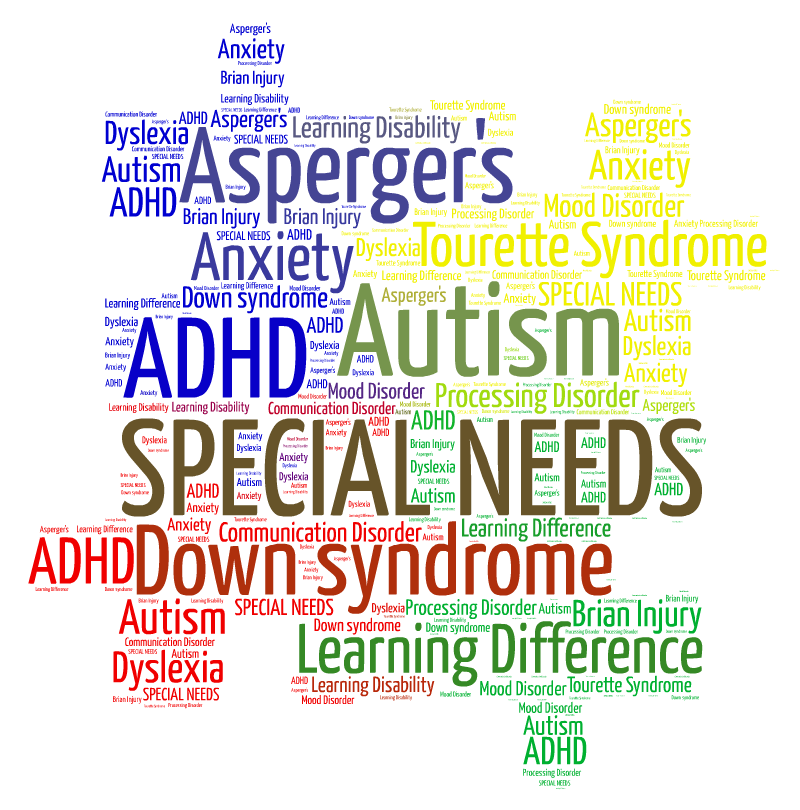The law is often misunderstood by both parents and carers of disabled children and people who work for public bodies. ‘Myths’ develop – some are listed here:
You need a diagnosis to be entitled to any support
A medical diagnosis is not essential in order to trigger a duty to provide support for a child with SEN. It often takes time to obtain a diagnosis even though it is obvious the child has substantial needs. It would be unlawful for a public body to refuse to provide care and support because there had been no diagnosis.
You can’t get school transport if you live within three miles of the school
Local authorities are under a duty to provide transport support for some disabled children – for example, to school or to a respite service. Transport assistance cannot be refused because the disabled child lives less than three miles from school or is receiving DLA/PIP mobility allowance.
If your IQ is 70 or more you can’t get help
Any policy that states only people who have an IQ below 70 can have a ‘learning disability’ is irrelevant since a person may be ‘disabled’ even if they have a high IQ. In law, a ‘disabled child’ includes people with high-functioning autism, ADHD and personality disorders.
CAMHS don’t support children with autism or ADHD
The Child and Adolescent Mental Health Service (CAMHS) cannot refuse to support certain groups of people – for example, those with autism or ADHD. They should work with all young people in need of specialist mental health help.
Disabled children are entitled to two hours of respite a week
Short breaks support are sometimes referred to as ‘respite care’. Local authorities are under a duty to provide such support to assist family carers of disabled children. Local authorities must assess how much short breaks support a family needs and are then under a duty to provide this. There is no ‘maximum’ limit on how much support of this kind can be provided.
If your home is rented, you can’t get a Disabled Facilities Grant (DFG)
A DFG is paid by the local authority to cover the cost of adapting a home to make it accessible/safe for a disabled person. DFGs are non-means tested for disabled children and can be paid for rented as well as owner-occupied homes.
You don’t have a right to Direct Payments
Direct payments (DP) are cash payments made by social services to people who have been assessed as needing support. DPs can be used to employ family members.
You don’t have a right to a separate carer’s assessment
Carers (and disabled people) have a right to an assessment with a skilled member of social services, who must identify their ‘needs’ for social care support, services and equipment.
All young people who have an Education, Health and Care plan in school will have a plan until they are 25
An EHC plan can continue as long as the young person stays in some kind of education or training (this doesn’t cover higher education), and it is still necessary for the local authority to arrange the extra support they need in order to achieve the educational outcomes set out in their EHC plan.
The requirement for social care needs to be identified and met is not applicable if the child/YP is not currently known to social services
The EHC needs assessment must include advice on the child/young person’s social care needs (although this may not need to be via an assessment under section 17 of the Children Act, it could be via Early Support or other non-statutory assessment processes).
A young person over 19 can only keep their EHC plan if they are working towards an educational qualification
Recent case law, Buckinghamshire vs SJ made it clear that not attaining qualifications or only making limited progress does not mean that SEN provision is not needed or of benefit.
If the parents’ preferred school is named in an EHC plan, the LA does not have to provide transport to the school
If the child is eligible for school transport, the LA must provide it (Education Act 1996). When there is disagreement over the cost of placement LAs and parents can make a deal whereby the LA names the parents’ choice of school if the parent agrees to provide transport.
LAs no longer have to specify provision in section F, we just enter the amount of funds allocated
If anything, the new law is clearer that provision in section F must be detailed and specific and should normally be quantified.
A child will only be eligible for an EHCP Assessment if they have an EP report/been through 2 cycles of plan/do/review at SEN support/are 2 years behind/have spent £6000
The legal test for statutory assessment under the CfA is whether the child/YP has or may have SEN and it may be necessary for special educational provision to be made for the child or young person in an EHCP. All LAs will have criteria for making decisions on assessment but these must not impose a higher threshold than the legal test. The LA can reasonably expect the education provider to be able to evidence that they have taken ‘relevant and purposeful action’ (although a lack of this will not necessarily be enough to prove that an EHCP is not necessary), the LA cannot
insist on an EP or any other report as part of any eligibility criteria.
All provision supplied by the NHS should be in section G as it is health provision
Provision supplied by health providers which educates or trains the child/YP should be in section F. This is particularly applicable to speech and language therapy since communication is clearly essential to education, but it can apply to other types of health provision.
You can’t ask for a school placement outside your LA area
Yes, you certainly can, and the LA must comply with your preference unless the suggested placement is incompatible with the efficient use of public funds or the efficient education of other pupils.
Maintained mainstream schools can refuse to admit your child if they choose
No, they can’t, unless admission of your child would be incompatible with the efficient education of other children AND there are no reasonable steps that can be taken to overcome that incompatibility.
Council for Disabled Children: The SEND Information Organisations Group is a group of organisations that provide information to parents and carers of children and young people with special educational needs, and disabilities (SEND). These organisations include: ACE education; Contact; Downs Syndrome Association IASSN; IPSEA; NAS; NDCS; Kids; Network 81; SENSE; SOS-SEN

